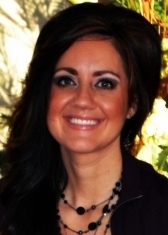Dialogue for Reciprocity
Community-engaged learning requires we engage with community partners: listening opening, speaking honestly, and dialoguing effectively. Preparing students for this work can be challenging. Dialogue and deliberation for collaborative action tend to require particular participatory virtues, skills, and habits as well as a framework for engaging tension productively.
- What are those participatory virtues and practices?
- How do we create space for deep listening?
- What are some tools for exploring questions that matter?
- How do we connect diverse perspectives?
This session went over quick and effective pedagogical techniques, in-and out-of-class activities, and larger-scale projects for preparing students to engage tension and explore the creative possibilities in difference.
Download the presentation and handouts from this session by clicking on the links below.
Presented by:
[1408469440].jpg)
Professor Diane Maodush-Pitzer
236 Lake Ontario Hall
(616) 331-2848
[email protected]
Madoush-Pitzer is the Program Coordinator for Religious Studies at GVSU. With an extensive background in interfaith dialogue and community collaboration, she has utilized the work of Parker Palmer and the World Cafe within the classroom and in the broader community. Diane also teaches LIB 312 “Dialogue, Integration and Action” focusing on bringing individuals together to identify issues of significance in their work or educational settings and seek pathways for dialogue and discernment.

Professor Danielle Lake
241 Lake Ontario Hall
(616) 331-8038
[email protected]
Professor Lake’s research is on the need for democratic deliberation in a wicked world. Given these research interests, she has recently received certification in facilitation leadership. Since then, Lake has had the opportunity to put these skills to the test with a number of West Michigan community partners. She also regularly teaches LIB312: “Dialogue, Integration, and Action” at GVSU and serves on the “Community as Classroom: The Pedagogy and Practicality of Community-Based Teaching” Faculty Learning Community.
